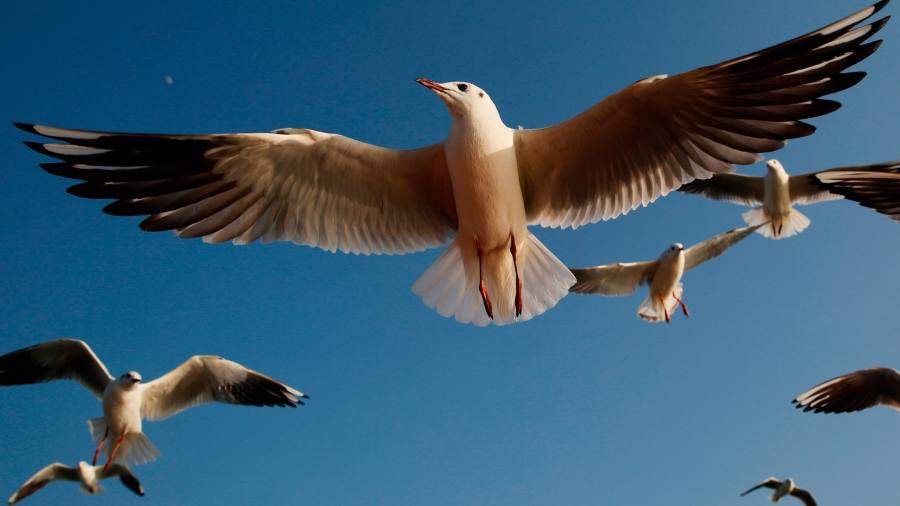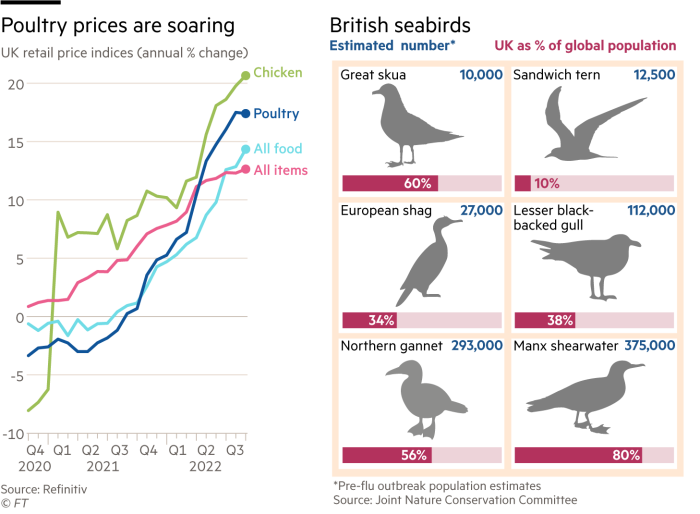
In many countries, the threat of Covid has receded enough to be a bad memory. But one pandemic has not received enough attention: the one cutting through global bird populations in 37 countries. This week, Britain’s chief veterinarian took action to control the spread of avian flu by ordering all commercial poultry to be confined indoors.
Farmers have culled millions of chickens and turkeys this year. By the end of October, US retail prices for female turkeys had shot up 28 per cent year on year, according to US Department of Agriculture data.
A bigger toll is falling upon wild seabirds. The H5N1 flu strain has spread around the world via migrating species. In the UK, the current outbreak first appeared last winter and unusually persisted through the summer. The impact on wildlife is difficult to measure. But loss estimates range as high as 1mn birds. The natural crowding of seabirds on breeding cliffs only accelerates contagion.

Conservationists record hundreds of dead birds washing up on Britain’s beaches. Scientists worry about Scotland’s population of great skuas. As many as half of all adult birds may have perished, according to the Royal Society for the Protection of Birds. The species is now at real risk of dying out locally.
Britain’s poultry sector will also be hit. Poultry businesses have destroyed an estimated 5.5mn commercial birds since last October to lower transmission. That is a small number compared with the 20mn birds slaughtered weekly for food.
But as supplies drop, feed prices are rising. The industry has been passing on higher poultry costs to consumers. UK chicken prices measured by the retail price index rose at 21 per cent annually in September, outstripping the rise of 14 per cent for all food groups and 12 per cent for all prices on the measure.
Fears of a turkey shortage this Christmas could mean the UK authorities will relax marketing rules so that frozen turkeys, once thawed, can be sold as fresh.
Farmers will receive compensation for birds they cannot sell. But in the aftermath of the epidemic, the UK should also find funds to help beleaguered wild bird populations recover. Important populations of seabirds are part of the British Isles’ natural capital.